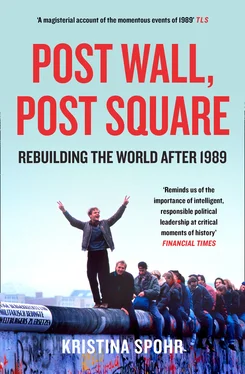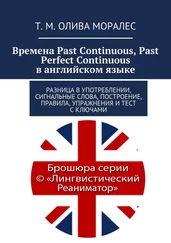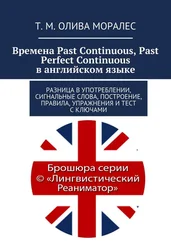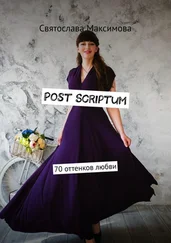Although apparently emerging as an independent actor, the EC always relied for its effectiveness on the key member states. Delors, for all his ambition, never forgot this. And the most significant economic power in the EC was the Federal Republic, so it was vital to work closely with Kohl. Bush, of course, knew this; and he also understood well that the German–American axis was one way of engaging with the West European engine. After all, the chancellor was genuinely supportive of EMU: as Delors told Bush, ‘Kohl reinforces the goals of the European Community.’ Of course, there was now a danger in the summer of 1989 that further Western European integration might be derailed by the incipient disintegration of Eastern Europe. Yet here again Germany was pivotal.
This became clear during the Paris G7 summit over the question of how to channel aid to Poland and Hungary. It was Kohl who sponsored the idea of the EC as the conduit for Western financial assistance. For the chancellor – ever mindful of the German question – this route offered several advantages. First, West Germany (like America) was keen to maintain the momentum of change within the Eastern bloc but he wanted to keep the process peaceful and avoid bloodshed. A concerted Western economic initiative could prevent anarchy and forestall Soviet military intervention. Second, if the FRG sheltered under the EC umbrella, nobody could blame Kohl going it alone – edging away from West, cosying up to the East and even asserting German power in ways that raised the spectre of the Kaiser and the Führer.
What’s more, unlike Bush, Kohl was ready to put a substantial sum of money on the table. He had already told Bush on 28 June that he intended to offer Hungary an additional DM 1 billion (nearly $500 million) of ‘fresh money’, on top of a loan without conditions of the same amount that he had granted in 1987. Even if the fine print made clear that this funding was actually loans and credits for buying German goods and services rather than direct aid, the sum involved was forty times more than what the president himself had offered Budapest. The chancellor was also very keen to help Poland bilaterally, but this was currently on ice because the aid question was entangled with the position of the German minority in Poland – a sensitive matter for the Poles and for the political right in the FRG. This controversy, rooted in unsettled territorial legacies of the Second World War, was another reminder of the FRG’s limits as an independent international actor. The deadlock over a deal also frustrated Kohl’s aspiration to go to Warsaw. Initially planned for the summer to follow on the heels of Mitterrand and Bush, his state visit to Poland would not take place until 9 November.[95]
Delors and the G24 moved fast because Warsaw and Budapest feared that economic collapse might undermine democratic reform. Officials made a distinction between Hungary and Poland, however, since only the latter had requested short-term food aid to combat severe shortages. Hungary’s twenty-four-page wish list concentrated on better terms of trade with the industrialised world and the liberalisation of foreign investment. The Poles, of course, would come in for similar consideration once their immediate food crisis was resolved. On 18 August, as part of a $120 million package including meat, cereals, citrus fruit and olive oil, the EC announced its first delivery of 10,000 tons of beef to Poland, to arrive in early September. A further shipment of 200,000 tons of wheat stored in Germany, as well as 75,000 tons of barley from France and 25,000 tons from Belgium, were soon to follow – with 500,000 more in the pipeline. The idea was that the Polish government would sell the free food to the people and then reinvest the profits in their economies, especially the private farm sector. This arrangement was formalised in a counterpart fund agreement the G24 negotiated. The role played by EC/G24 in the late summer of 1989 would provide a template for further Eastern aid packages in the future.[96]
So, in the end, it was Brussels, not Washington, which oversaw Western support for change in Central and Eastern Europe. This somewhat undercut Bush’s claims that it was he and the United States who were ‘propelling’ reform in Poland and Hungary. Although his rhetoric had grown bolder since the spring, Bush’s actions revealed his preference for evolution over revolution, privileging stability and order, backed by a deliberate policy of burden-sharing with allies.[97] A mild recession in the USA and a legacy of debt from the Reagan years that had dramatically increased the federal budget deficit reinforced Bush’s apprehensions about the dangers of anarchy in a Europe that might become a bottomless pit for US dollars. The president was therefore pleased with the outcome of the G7 summit. What worried him most was a letter that Mitterrand read out on Bastille Day at the very start of their meeting.
*
The letter came from Gorbachev – it was the first time that a Soviet leader had written officially to the G7. And, it was also the first time the USSR had proposed not only expanded economic cooperation but even direct Soviet participation in such efforts.
‘The formation of a cohesive world economy implies that the multilateral economic partnership be placed on a qualitatively new level,’ Gorbachev wrote. ‘Multilateral East–West cooperation on global economic problems is far behind the development of bilateral ties. This state of things does not appear justified, taking account of the weight that our countries have in the world economy.’ That, he said, was the logical extension of his programme of domestic economic restructuring. ‘Our perestroika is inseparable from a policy aiming at our full participation in the world economy,’ he stated. ‘The world can only gain from the opening up of a market as big as the Soviet Union.’[98]
As with all of Gorbachev’s words, the rhetoric was impressive, even compelling. There was no mistaking the Soviet leader’s keenness to join the G7. But Bush was wary about the Soviets. Their reforms had not yet advanced far enough to warrant full membership in the top club of free-market economies.[99] And he could see that Soviet involvement would mostly be of benefit to Moscow. Yet Gorbachev’s letter, widely quoted in the international press, was impossible to ignore. The absence of the Soviet leader was felt throughout the summit, just as it had been during Bush’s visits to Warsaw and Budapest. Tiananmen was another ghost at the feast – an ugly reminder of what could happen if democratic reform went wrong.
After the summit ended on Sunday morning, 16 July, Bush chatted with Baker and Scowcroft on the steps of the Paris embassy overlooking the garden; they discussed their impressions and experiences of the past few days. Suddenly the president announced that the time had come for him to meet at long last with Gorbachev – speaking, as Scowcroft later recalled, ‘in that way he has when his mind is made up. Neither Baker nor I remonstrated with him. Baker had never been as negative as I about an early Gorbachev meeting, and I no longer felt so strongly about it.’[100]
It looked like a spontaneous impulse, but in fact Bush had been mulling over this for several weeks. Particular impetus came from the West Germans. On 6 June, in the Oval Office, FRG president Richard von Weizsäcker had warned Bush about the implications of the recent turbulence in Poland and Hungary. ‘It would be useful if the US had quiet talks with Moscow about the future of Eastern Europe,’ he said. The West European allies would do the same based, as he put it, ‘on the values of the Atlantic Alliance’ and the FRG would act within this framework to avoid any impression of an independent Ostpolitik.[fn1] Weizsäcker returned to the same point later in the conversation, warning Bush more bluntly that ‘in their foreign relations, the Soviets are approaching a time that is totally unknown to them, and they are legitimately worried’. He added firmly: ‘The West needs to talk to Moscow to alleviate these fears.’ The US president did not respond directly but segued to China, observing that he ‘had the feeling that the Soviets are saying “there but for the grace of God go I”. They may be worrying that reform could affect them in the same way.’[101]
Читать дальше












